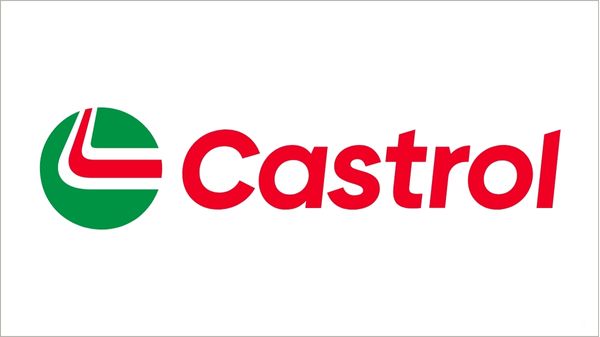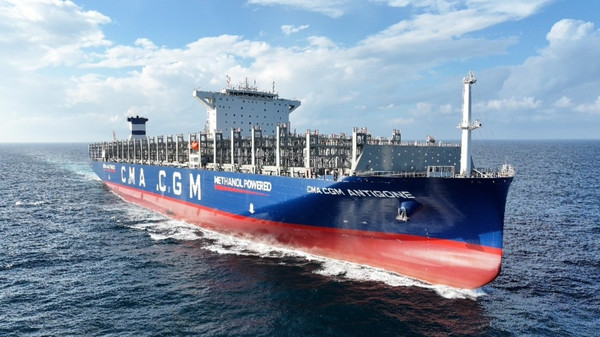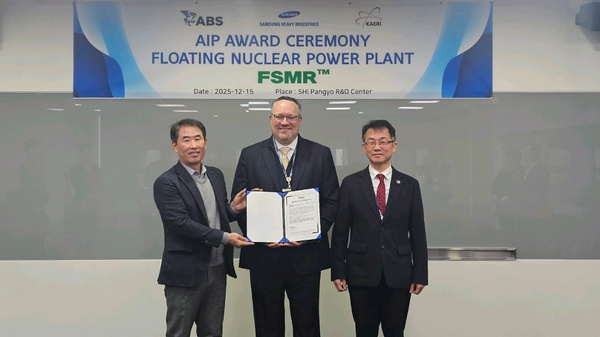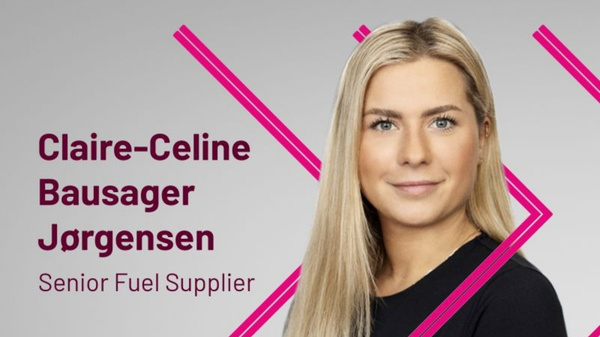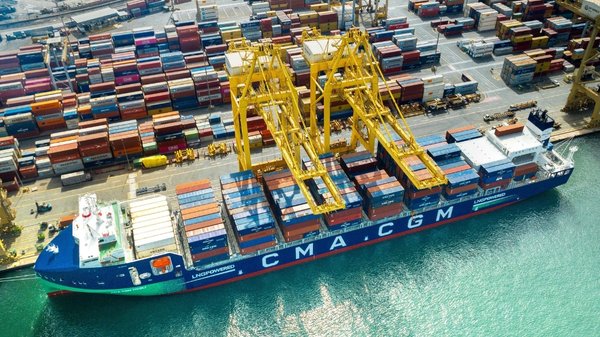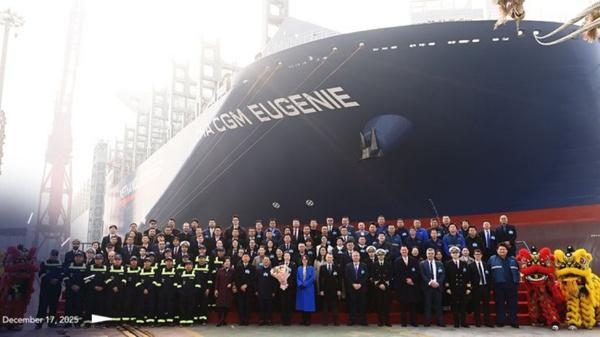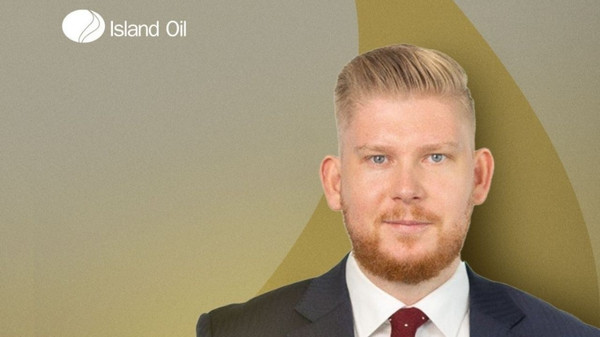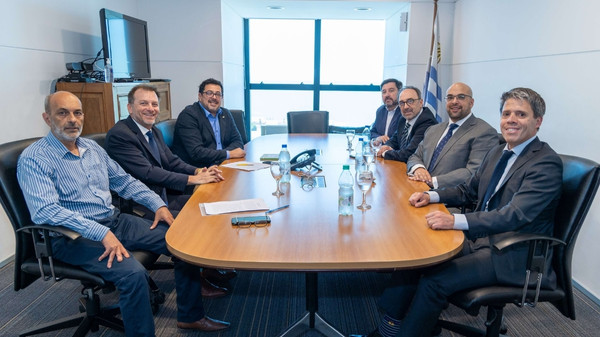Opening address of Koji Sekimizu [pictured], IMO Secretary-General, at the opening of the 65th session of the Marine Environment Protection Committee (13 to 17 May 2013)
Good morning, distinguished delegates and observers – and welcome to the sixty-fifth session of the Marine Environment Protection Committee.
***
Distinguished delegates,
Before I address some of the most important items on your agenda this week, I wish to update you on some general matters of importance to the work of the Organization relevant to the Committee’s work. This year, our World Maritime Day theme is “IMO’s contribution to sustainable development beyond Rio+20”. We have commenced discussions with industry partners and other stakeholders on sustainable maritime development with the aim of developing a clear concept of sustainability of the maritime transportation system that would provide a framework and springboard for our work meeting the challenges of the 21st century. I hope to present, in good time for our World Maritime Day celebration later this year, a concept of sustainability for the maritime sector, together with a related agenda to move forward the roles for IMO, for Member Governments and for industry.
Meanwhile, I look forward to inaugurating, on Thursday after close of business, the permanent display on Particularly Sensitive Sea Areas, which, as I announced at your last session, will showcase the success of IMO in protecting sensitive marine areas.
Setting up and populating the interactive displays demanded very hard work from the dedicated staff of the Marine Environment Division and would not have been possible without the crucial support of a number of Member Governments. My special thanks go to the Governments of Australia, Finland, Germany, the Netherlands, the Republic of Korea and Sweden, who provided substantial financial support. I also wish to thank all those Members who provided materials on PSSAs in their respective areas.
Please do take the opportunity of your coffee and lunch breaks to visit the display, which is located on the second floor, just outside the Committee rooms. To date, 14 PSSAs have been established by means of MEPC resolutions, the Saba Bank in the north-eastern Caribbean being the latest addition, which was formally designated by MEPC 64 last October.
***
Mr. Chairman,
In June of last year, I reported to the Council (108th session) on my Review and Reform initiative aimed at improving IMO's delivery mechanism to handle the ever-increasing workload as the Organization seeks to address newly-emerging priorities under increasingly restrictive financial circumstances following the unprecedented economic contraction and financial crises and tight budgetary control. At its subsequent session, in November last year, the Council considered my report of a study on the Organization’s long-term financial sustainability. Among other issues involving the review and reform initiative, my report addressed matters related to the restructuring of the sub-committees. A framework document has already been released for detailed consideration by your Committee and by the MSC. I am looking forward to further development on this important issue, with the aim to reach a rational and well-balanced decision at the Council in July of this year.
***
Distinguished delegates,
Turning now to the main tasks set for your Committee at this session, I will start with the status of implementation of the Ballast Water Management Convention. With 36 contracting parties to date and with the only outstanding entry into force condition of 35% of the world’s merchant tonnage now being close to fulfilment, a little under 6% is all that is still required. We ought to be optimistic that the Convention will enter into force soon. However, the industry continues to have major concerns over the cost of compliance.
I would strongly suggest that now is the time to move towards implementation. The problem associated with ballast water is inherently connected to the expansion of world trade and, therefore, an issue from which the shipping industry cannot escape.
Ever since the matter was raised by Member Governments in the late 1980s, IMO has been actively working on the ballast water management issue, adopting voluntary guidelines in 1991, with updated versions in 1993 and 1997, and adopting the Convention in 2004. Scientists agree that the ballast water management issue affects ocean health and marine biodiversity in a major way, with thousands of species being transported around the world at any given moment and shipping transferring approximately 3 to 5 billion tonnes of ballast water each year, and this volume will increase further with the growth in world trade. IMO quite rightly led the way with adopting ground-breaking requirements, with global scope, for countering the invasive – and possibly irreversible – harm caused by ships’ ballast water and sediment discharges. It is also for this reason that our Globallast partnership projects assist a growing number of countries in regions around the world to strengthen their capacity, including a strengthened legal framework, to implement measures addressing the problem of bio-invasions of local marine and coastal environments and ecosystems.
It is recognized that there is a substantive cost required for installing and operating a ballast water management system – some 1-2 million US dollars per ship, depending on size and type, plus operational costs. However, the estimated costs for society to deal with problems caused by alien aquatic species are comparatively very high, in fact astronomical. Just, for example, in the United States, the invasive Zebra Mussel has infested over 40% of inland waterways, and management and control costs for facilities such as power plants are calculated in billions of dollars. In the Caspian Sea, the costs related to one single alien species – the American comb jelly – are estimated to be 500 million dollars annually due to the drastic decline in fisheries, and the costs for alien aquatic species in Europe have been estimated to be some 2.9 billion dollars per year.
Shipowners understandably are concerned about incurring additional costs and costs of compliance, especially in the current difficult economic climate and as the costs of other environmental regulations such as sulphur restriction requirements and energy efficiency standards must also be absorbed. It is also inevitable that the development of new technologies required for regulatory compliance takes time, which has caused many owners to hold back from applying them on board recently constructed ships. However, these concerns should not stop us from activating the implementation of the Convention and I would strongly encourage IMO Member Governments, and the major flag States in particular, to co operate and establish meaningful measures which would ease the burden for the shipping industry of introducing the necessary ballast water management technologies, within the framework of the Ballast Water Management Convention. We must move to entry into force and implementation of the BWM Convention.
I am pleased that very positive steps have been taken since your previous session to address outstanding concerns related to the effective implementation of the Convention.
A correspondence group has worked hard (under the coordination of Japan) to produce a draft Assembly resolution to ease and facilitate the process of implementation. I therefore urge the Committee to engage in further discussions to narrow down the options provided by the group, with a view to approving at this session a draft resolution for adoption by the Assembly at its twenty-eighth session in November. By proceeding in this way, IMO will have an authoritative and operationally practicable agreement, your gentleman’s agreement, in place on how to start effective implementation of the Convention. And, as I have said several times before, once the Convention has entered into force, its formal amendment procedure should be invoked to accommodate your agreement in legal terms for implementation under the active Convention in force.
***
Another IMO Convention on my radar of concern with respect to the need for speedy ratification and implementation is the Hong Kong International Convention for the Safe and Environmentally Sound Recycling of Ships. Having been adopted almost four years ago, on 15 May 2009, the Convention has yet to attract even its first accession or ratification. This is despite the fact that the whole package is complete, including all six guidelines identified by the Hong Kong Conference and required under the Convention.
The Hong Kong Convention is the currently available best and only workable instrument for international shipping and, having been adopted by consensus by an IMO international conference – it is truly global in scope. Therefore, we must accelerate the process of ratification and ensure its early entry into force in order to ensure the safety of workers and the protection of the environment. It is encouraging that leading international associations of shipowners have agreed to support voluntary adherence to the requirements of the Convention during the interim period, prior to its entry into force, such as having ships carry on board the (to-be-mandatory) Inventory of Hazardous Materials and, in fact, many shipowners have been preparing the Inventory of hazardous materials for their ships to facilitate ship recycling at the end of ships’ operating life. In this regard, your Committee is expected to expedite further, at this session, the practical matter of the “threshold values and exemptions for hazardous materials” to be listed in the shipboard Inventory of Hazardous Materials.
Not only does this confirm that the Convention is indeed workable for the shipping industry, it also puts into motion a process of gradual, pragmatic and realistic safety and environmental improvements, which will benefit especially those ship recycling yards where such improvements are needed most.
I particularly request ship recycling countries, including Bangladesh, China, India, Pakistan and Turkey, to accelerate the process of ratification. At the same time, I would like to encourage all other Member Governments to pay respect to the provisions of the Convention by supporting it through early ratification as well and by making every possible effort towards its implementation through the IMO process. A slow pace of ratification and a prolonged state of non-fulfilment of the entry into force conditions only risk creating a situation that may compel some authorities to take action to try to enforce measures that would go beyond IMO regulations or impose additional requirements, even before such IMO regulations enter into force. This is against the spirit of co-operation at IMO and damages the credibility of the Organization. Therefore, anything related to the implementation of the Hong Kong Convention should be discussed here at IMO and not elsewhere.
***
The Committee’s work on matters related to air pollution under the revised MARPOL Annex VI (agenda item 4) will, once again, continue on various fronts and include consideration of the recommendations of the review of technological developments to implement the Tier III NOx emission standard; and the need for further measures to address Volatile Organic Compounds.
You will also be invited to consider sulphur emissions averaging as an equivalent approach to comply with the sulphur limits under the Annex. I trust that you will carefully weigh the benefits of such an approach, and be always mindful of the need to ensure both a robust and workable approach to the full and effective implementation of the sulphur reduction requirements.
Distinguished delegates,
The entry into force, on 1 January of this year, of mandatory technical and operational measures for ships’ energy efficiency signalled a new era for international shipping.
Several proposals have been submitted for consideration at this session, all of which confirm that enhancing the energy efficiency of ships remains paramount. As you may recall, energy efficiency is one of the pillars I believe should underpin Sustainable Development Goals for shipping and the maritime industries. Specifically, at this session you will be asked to consider requirements for collecting and verifying data on ship emissions to encourage further energy efficient improvements.
A phased implementation is proposed which will enable review and refinement in order to build confidence in the process. I will be very interested in the outcome of your deliberations as the technical issues will once again demonstrate IMO’s competence as the global forum for deliberating measures to enhance the sustainability of international shipping.
With this in mind, I welcome the proposal by IACS to collate and provide to the Committee information pursuant to the implementation of the Energy Efficiency Design Index. Here again, in short, IMO will have a good story to tell the outside world that IMO is making progress in the field of energy efficiency.
As regards the reduction of greenhouse gas emissions from international shipping (agenda item 5), I am encouraged by the outcome of the Expert Workshop that was endorsed by the Committee at MEPC 64. Held at IMO Headquarters earlier this year, this workshop identified draft Terms of Reference for an update of the estimate of greenhouse gas emissions from international shipping, which you will be invited to consider. An updated emissions estimate would provide a robust baseline to assess the impact of the technical and operational energy efficiency measures for international shipping that entered into force on 1 January.
Last, but definitely not least, is the finalization of the draft MEPC resolution on promotion of technical co-operation and transfer of technology. This has been on the agenda of the Committee since MEPC 62. The resolution, once adopted, will give confidence to all parties that their capacity building needs are appropriately recognized. I acknowledge that delegations have worked very hard to achieve a compromise, and I therefore encourage all parties to again work together to finalize the work at this session.
***
Distinguished delegates,
Substantial progress was made with the development of the draft Code for ships operating in polar waters by the DE Sub-Committee, which prepared draft provisions concerning environmental protection for the Code at its March session. It will be your Committee’s task this week to review those draft provisions and to work towards achieving consensus on outstanding issues that could not be resolved by the DE Sub-Committee. In this regard, I would urge you to focus your attention on matters of principle as this would help to expedite the work that remains to be done. I am now confident that it will be possible to complete the work on the Code by next year, which is the target date we set ourselves. The DE Sub-Committee’s request to your Committee and to the Maritime Safety Committee to authorize an intersessional meeting of the Polar Code Working Group later this year (in autumn) should help significantly in this regard.
***
Distinguished delegates,
In the interest of time I have chosen only a few selected items on your agenda and there are several more, all important and calling for careful consideration.
Once again, you have a very busy week ahead of you. I am confident that, with the usual IMO spirit of co-operation and guided by your able chairman, Mr. Andreas Chrysostomou of Cyprus, for whom this will be the last MEPC session as your Chairman, you will have another successful meeting, demonstrating to the outside world that the commitment of this Organization and of the shipping industry to the protection of the environment is undiminished. We have a good story to tell indeed, and we also have cause for celebration, because this year marks 40 years since the adoption of MARPOL in 1973 and 30 years since the establishment of the World Maritime University in Malmö.
It is also 30 years ago, on 17 May 1983, that Her Majesty Queen Elisabeth II officially opened our IMO Headquarters building. I shall, therefore, be privileged to host the presentation by the Government of Chile of a commemorative plaque in the form of the IMO emblem, made from Chilean copper, which will be placed on the wall behind the podium in the Main Hall, after which I shall be pleased to welcome you all to the usual, opening day drinks reception after close of business this evening.
Before concluding, I would like to touch upon the maritime casualty in Genoa, last week. I express my and the Organization’s condolences to the victims and families of those who lost their lives at the casualty where ro-ro containership Jolly Nero collided with the Control Tower. This is another tragedy for Italy and I offer my deepest sympathy to Italy and the Italian Coast Guard in having encountered another maritime tragedy, while they are finalizing the Casualty Investigation Report of Costa Concordia.
With these words, I wish you every success in your deliberations and the best of luck. The Secretariat will, as always, support the meeting to the best of its abilities.
Thank you.

